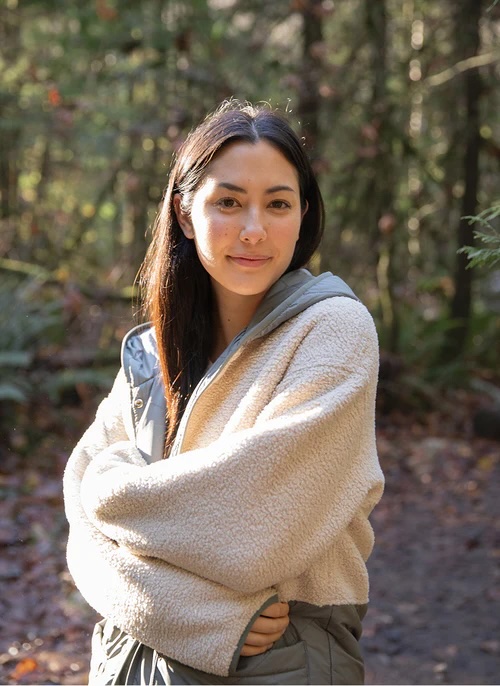
My Favorite Wellness Practices That Don’t Cost A Thing
Wellness shouldn’t come with a price tag, yet a quick scroll through social media or a glance at celebrity wellness culture often suggests otherwise. During my years living in Los Angeles, I noticed a common trend amongst those speaking about self-care. People often equated taking care of themselves with spending money. For the cost of a monthly membership to Pilates studios, spa treatments, astrology apps, Goop boxes, and more, you might feel better — if you’re willing to part with a chunk of cash from your paycheck.
“True self-care is not salt baths and chocolate cake, it is making the choice to build a life you don’t need to regularly escape from.”
– Brianna Wiest, bestselling author and public speaker
I’ve thought a lot about the business of self-care and how our culture exploited our mental health crisis into an industry. But it’s taken years to actively unsubscribe from frivolous consumption, especially when it’s labeled as “feel good.” Two-day shipping may be readily available (often at the expense of labor workers), but it doesn’t fix the systemic issues that are making us feel ill. In fact, our dependence on shopping as a coping mechanism only masks the symptoms of deeper issues.
In 2020, I vowed to be more conscious of my relationship with unnecessary consumption and practice mindful living. As author Brianna Wiest once wrote, “True self-care is not salt baths and chocolate cake, it is making the choice to build a life you don’t need to regularly escape from.” By focusing my energy on sustainable ways to care for myself and those around me, I was able to build stronger ties with my community and not my bank account.
If you’re looking to overhaul your wellness practices, both financially and spiritually, here are some places to start.
Nature walks
Even before hot girl walks went viral online, communing with nature had deep ancestral roots. We are situated in this world together and therefore, have a relationship with the natural world. As someone who works from home, I’ve had to intentionally make time to be outdoors by setting alarms on my phones. It’s not just me who says fresh air is good for you; it’s been proven by scientists that the more time we spend in nature, the better we feel.
“Even before hot girl walks went viral online, communing with nature had deep ancestral roots.”
I’ve started inviting my friends to go on afternoon walks with me — we get the benefits of spending quality time without having to spend money. I live in an extremely walkable city and I’ve found that it’s easy to meet neighbors, find new small businesses, and learn about the history of New York City when I’m just freely roaming with a friend. Plus, it’s good for the cortisol levels that we’re always hearing about.
Most cities have hiking groups, run (or walk) clubs, or something similar. I especially love the ethos that Hike Clerb, a BIWOC outdoor collective, has: “We believe in the transformative power of healing in nature. We derive our positionality from the Black feminist visionaries behind the Combahee River Collective. To quote, ‘We realize that the only people who care enough about us to work consistently for our liberation are us. Our politics evolve from a healthy love for ourselves, our sisters, and our community which allows us to continue our struggle and work.”
From Hike Clerb, I’ve learned that spending time in nature and in community is a radical act of self-care, even if a simple one.
Volunteer locally
Volunteering is one of the most meaningful ways to enhance your own quality of life and those around you. It’s a chance to shift your focus outward, build connections, and cultivate a sense of purpose. From helping at local food banks to mentoring youth, opportunities abound — and most don’t require specialized skills, just your time and dedication.
“I’ve found that volunteering not only fosters gratitude but also alleviates the isolation that can come from spending too much time online or indoors.”
Personally, I’ve found that volunteering not only fosters gratitude but also alleviates the isolation that can come from spending too much time online or indoors. It’s also an incredible way to meet people who share similar values. If you’re unsure where to start, try reaching out to community centers (like the YMCA or the public library), and checking listings on VolunteerMatch. If you’ve been particularly stressed about the state of our politics, here is a list of grassroots organizations to support.
Not only does volunteering give back to the community, but it also allows you to see the tangible impact of your actions — something that’s far more fulfilling than scrolling through Instagram (again).
Reduce your digital footprint
Reducing your digital footprint might sound technical or extremely time-consuming, but it’s really about creating healthier habits with your devices and the internet and it often only takes just a few clicks. One simple yet impactful step is turning off AI features in settings like Google searches and other apps that track your data. Doing this helps maintain your privacy, limit targeted ads, and reduce the overwhelming digital clutter we’re constantly bombarded with. Plus, it’s good for the environment as AI takes up an exorbitant amount of natural resources. If you prefer to implement this on a case by case basis, you can simply add “-ai” to your Google search to omit the results.
“It’s really about creating healthier habits with your devices and the internet and it often only takes just a few clicks.”
If you use Google as your primary search engine, you might consider switching to privacy-first search engines like DuckDuckGo or Startpage, which do not track your searches or retain your data. Alternatively, Google has settings that allow you to limit and customize your personalized ads, disable location tracking, or prevent automatic data collection.
Don’t forget your browser settings as well:
- Use privacy-focused browsers like Brave or Firefox, which block trackers by default.
- For existing browsers like Chrome, install extensions such as uBlock Origin or Privacy Badger to block third-party trackers.
- Regularly clear cookies and browsing history to minimize the data sites can retain about you.
And check your mobile device’s settings too:
- Review the permissions you’ve granted to each app on your phone. Turn off access to your location, microphone, and camera unless it’s absolutely necessary for functionality.
- Disable “background data” usage for non-urgent apps. This not only protects your data but also conserves battery life and reduces bandwidth usage.
- On social media apps, opt out of personalized ads and limit data collection by managing privacy settings. For example, Facebook allows you to turn off location history and ad targeting preferences in your account settings.
By being more mindful of your digital practices, you can protect your personal data and cultivate a healthier relationship with technology as a whole.
Join a club in your community
A rare resolution that I’ve stuck to was to build stronger relationships offline. I noticed that whenever I went into a local coffee shop, there would be fliers for book clubs, chess clubs, knitting clubs, and the like. The best part? Most of them were free. I found Joy Letters Journal Club in Brooklyn, New York, and found myself loving the three hours spent free writing and sharing with a group of people I never would have met otherwise.
“A rare resolution that I’ve stuck to was to build stronger relationships offline.”
Another incredible resource that people tend to overlook is the public library. Not only do they provide free books, they often book discussions, film screenings, creative writing workshops, and even language or coding classes for free or low cost. Libraries are such an important third place and depend on your patronage to stay afloat. It’s a win/win all around. ✨
“The most meaningful action you can take for your wellness is free.”
Ultimately, wellness shouldn’t be something that can be bought or sold — especially when there are so many alternatives that are better for you and the world around us. These practices have worked for me in building a sustainable life rooted in care — not just for myself, but for people I love.
Budget should never determine your relationship with mindful living and despite what the status quo might tell you, the most meaningful action you can take for your wellness is free.
Sara Jin Li is an essayist, playwright, and filmmaker based in Los Angeles, California. She is also the founder of Heretics Club, a literary salon for creative writers. You can find her on Instagram at @sarajinli.




